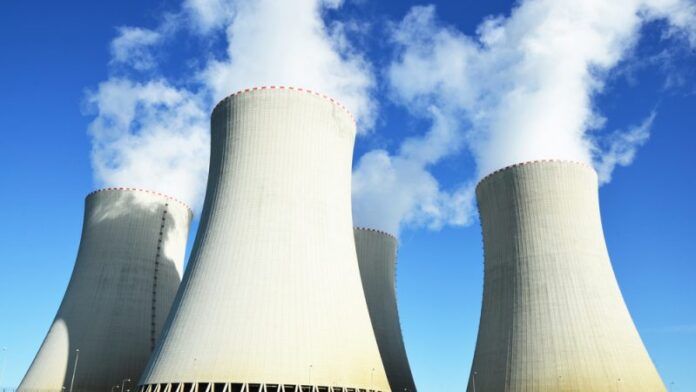Five industrial and research actors from Belgium, Romania, Italy and the US want to speed up the development of small modular reactors (SMRs), a memorandum of understanding between the five signed on Wednesday reads, according to Euractiv.
Romanian and Belgian nuclear research centres RATEN and SCK CEN, Italian nuclear company Ansaldo Nucleare and engineering and energy R&D agency ENEA, together with the American Westinghouse Electric Company, have agreed to set up a consortium to work towards the development of SMRs with lead-cooled fast reactors that can be commercialised in Europe.
The agreement was signed in the presence of Belgian Prime Minister Alexander De Croo, Romanian President Klaus Iohannis, and representatives of the Italian and American embassies in Belgium.
The collaboration “begins with the demonstration of Lead Fast Reactor Technology, showcasing its potential,” SCK CEN said in a press release. It added that the first Belgian lead-cooled SMR model will be completed around 2035-40.
“Belgium is teaming up with the US, Romania and Italy to put SMRs on the market to provide clean and cheap energy. The time to take the lead in the fight against global warming is now,” De Croo said on X.
While the Belgian government is not united on the nuclear question, it commissioned SCK to study innovative SMRs and gave it €100 million for its research last year.
“This [re]search proved successful, banking on the development programmes for lead-based nuclear technologies that have been carried out by several leading entities during the past years. Five of these entities teamed up for this ambitious project,” the press release reads.
According to SCK, lead-cooled SMRs “have very robust safety […] and offer the advantage of more efficient nuclear fuel utilisation and reduction of long-lived radioactive waste in a closed fuel cycle approach”.
Nuclear phase-out
Per its nuclear phase-out law, Belgium shut down two nuclear reactors (Doel 3 and Tihange 2) while two others that were to be shut down in 2025 (Doel 4 and Tihange 3) were extended.
In October 2022, a study conducted by the research organisation EnergyVille confirmed that combining new SMRs and increased offshore wind power was the cheapest option for Belgium to reach climate neutrality by 2050 at the lowest societal cost while guaranteeing supply security but without reducing industrial production.
However, as some observers have already pointed out, the nuclear phase-out law is at odds with the government funding SMR research.
“Although the Belgian government may have commissioned the study of Small Modular Reactors for Belgium, this is still at odds with the Nuclear Exit Law. To achieve a successful succession project, this will require further adjustments,” SCK wrote.
According to the Nuclear Forum, which represents companies and organisations linked to nuclear, in August 2023, nuclear power, which means 46% of the electricity mix, and renewable energies (32%) have made it possible for 78% of Belgium’s electricity to be decarbonised, with wind energy making up for 13,5% of the renewable energy used.
Besides wanting to develop new nuclear energy, Belgium wants to become an offshore wind power hub. Along with eight other countries it committed to jointly producing at least 300 GW of offshore wind energy by 2050 in the North Sea, and it has recently moved forward with its energy island project off its coast.
According to a survey by the Nuclear Forum, published by RTL, 69% of respondents believe that the best combination for electricity production in Belgium is a mix of nuclear and renewable energy. The survey also found that 85% think nuclear energy should be part of the country’s energy mix after 2025, while 87% favour Belgium investing in the development and construction of SMRs.
In other words, the nuclear phase-out law, passed under pressure from the Greens, no longer seems to reflect the will of the people, which has evolved with the recent crises that have caused prices to rise and threatened the security of supply.
Nuclear energy could thus become a major talking point ahead of the federal elections in June 2024.


